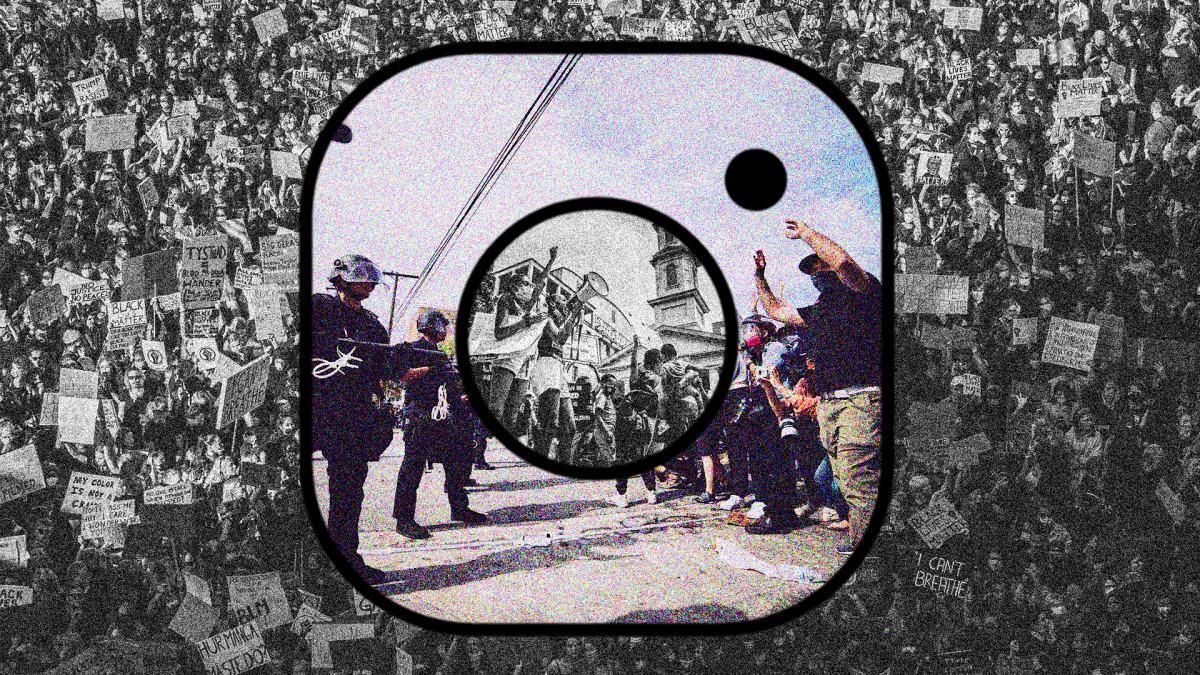Instagram has become a center for ongoing debates, activism event announcements and engagement opportunities. The platform empowers people to attend rallies and events as well as spread crucial information regarding issues that arise all over the world.
Although its role in shaping activism is huge, the company itself isn’t as significant in that mission. Instead, we must look toward the persistence of activists who successfully utilize the platform as a tool, despite Instagram’s attempts to repress important issues.
Instagram Makes Activism Accessible
With news outlets and activist groups constantly posting in real time, there is no shortage of content to engage with. These critical and lively discussions often serve to educate uninformed people on a subject.
Millions of accounts on Instagram continuously share ideas that educate while also creating a feeling of community involvement. This encourages people to actively contribute to shaping discussions on different societal issues. And the easy accessibility creates room for important dialogue and allows anyone to freely express what they feel passionate about.
Mobilizing Engagement Opportunities
The ability to repost information enhances attention on critical issues, ensuring that vital messages reach a broader audience. Additionally, captivating infographics pull readers in with an emotional impact. This combination of visual appeal and emotional feel reinforces the effectiveness of Instagram as a platform for meaningful activism, with some issues drawing global attention.
For example, think about the outreach during the Black Lives Matter movement following the murder of George Floyd. Instagram users relentlessly shared a petition started on change.org and accumulated a little under 20 million signatures.
The video of the murder started circulating on the internet, prompting the tireless organization of activists that shared and reposted it through a variety of platforms. These efforts were ultimately two of the many factors that led to the arrest of Derek Chauvin, the officer who killed him.
Instagram also presents a great opportunity for collecting donations for mutual aid purposes, which has proven particularly instrumental as of late. Donation posts for Gaza have spread across Instagram in the last two months, with the Palestinian Children’s Relief Fund alone reaching just under $2 million as of Dec. 10. Users have even shared donation requests for eSim cards to help keep Gazans connected. This creativity demonstrates the altruistic potential within the app itself.
Online activism has a very significant impact on implementing demanded structural change. For example, more than 140 pieces of police reform legislation passed in the U.S. a year after George Floyd’s murder. We see calls for structural change regarding Gaza on a similar scale now.
The Flip Side
However, the problem of performative activism persists, defined by the Boston Medical Center as activism “done to increase one’s social capital rather than because of one’s devotion to a cause.”
This was most prominent with the Black Lives Matter movement on Instagram. During the movement, people flooded feeds with pictures of black screens, with most people doing it performatively to fit the narrative. This posed an issue because people were merely focused on posting black squares instead of helping the spread of important information. Additionally, this clogged the BlackLivesMatter hashtag, making it harder to find important anti-racist resources.
We can learn from this example by realizing that activism shouldn’t be a trend. For issues to be resolved, people have to genuinely care to make a difference. Finally, it’s also important to note that reputable sources must act as frontrunners for important information, guiding people through misinformation.
But despite the bad rap it gets, not all online posting is performative, and it should be valued in its own way. The more people know a protest or rally is happening, the more people will show up. For example, during recent campus events, Mecha de U of U, an organization at the U, had an amazing outcome for a Free Palestine protest. This emerged from their Instagram account providing essential instructions for those interested and gaining widespread attention, receiving hundreds of shares and likes.
What Can You do?
The more people learn the more they can do. Keep sharing issues that you’re passionate about, be mindful of what you post and keep your eyes peeled for events around campus and Utah that you can participate in.
We must remember that individual actions collectively lead to impactful change that won’t go unnoticed. Though there are some challenges and critiques relating to online activism, there is an undeniable testament to the power of awareness and persistence.
Let’s use Instagram responsibly and to its fullest potential, actively contributing to causes we’re passionate about. Turn your awareness into action.












John Hedberg • Dec 12, 2023 at 7:17 pm
Glenn Loury and John McWhorter (professors at Brown and Columbia, I think) had an interesting conversation recently on YouTube’s “The Glenn Show” titled “The Truth About George Floyd’s Death”. It turns out that the activists were spreading misinformation: George Floyd wasn’t murdered. Oops!
It’s the penchant of activists not to wait for emerging data to tell the whole story before coming to faulty conclusions based on incorrect assumptions (hypotheses). In this case, the BLM riots caused the death of more than a dozen innocent human beings, many of them BIPOC, because of a murder that wasn’t a murder, as horrific as it was.
Democracy isn’t based on activism but persuasion and reason, science which is based on evidence that emerges and conclusions which change over time, so was it worth the death of more than a dozen innocent people, many of whom were BIPOC, to protest a horrific death which turns it turns out wasn’t murder now that the facts are better known?
If you’re a true student of human rights and care about people of all stripes, watch “The Truth about George Floyd’s Death | Glenn Loury & John McWhorter | The Glenn Show” posted a few days ago. There’s also a documentary that’s got data that never made it into the trials of the police officers.
No truth without honesty. No justice without Love thy Neighbor as Thyself, since only Love makes the suffering in life meaningful and heals it.
Kind Regards,
J Hedberg